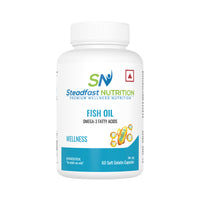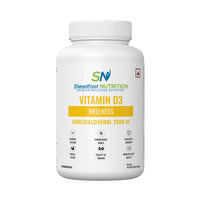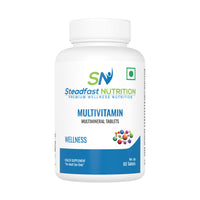When you reach out for a bottle of multivitamin , you may think and ask yourself as to whether they will work and how, and whether you need them in the first place or not?
Common dietary supplements include vitamins, minerals and other wellness products. People take supplements for filling in the gaps in their diet , in order to get the much needed nutrients and maintain or improve their health.
But does everyone need supplements ? If your diet is optimally balanced and your disease free , then you probably don’t need it. But due to a wide variation in today’s lifestyle and poor eating habits, it is next impossible to get enough nutrients from the diet itself. So it’s vital to cater to the nutriental needs and bridge the gap with the aid of dietary supplements. Also, it is important to speak to your doctor before taking any supplements. Unlike medications, supplements don’t treat any disease, but enhance our health in many ways.
Many nutritional supplements have proven to prevent nutritional deficiencies such as calcium, iron, vitamin B and vitamin D deficiencies etc.
Reasons to consider taking supplements
- Soil nutrient depletion, erosion, and absence of crop rotation has reduced the content of nutrients in food.
- Hybrid crops , even on organic farms offer lower nutriental content.
- Heavy pesticides reduce the nutrients in crops.
- Modern fertilisers don’t supply enough trace elements.
- Food processing industry has drastically reduced the nutrient content of foods.
- Weak digestion due to malabsorption or side effect of other chronic ailments and poor eating habits for instance, increased consumption of refined sugar and carbohydrate foods etc.
All the above mentioned reasons are the common causes of nutrient deficiencies in the current scenario.
What you should consider before buying a supplement ?
- Manufacturers are responsible for the quality and purity of the product and they must accurately display ingredients and their amount.
- Supplements should be GMP (Good Manufacturing Practice) certified, FSSAI (Food Safety and Standard Authority of India) certified, and should be free from banned substances or additives.
The need of certain nutrients increases in certain conditions, such as women's’ requirement for calcium , folic acid, and increase in iron during pregnancy and lactation. Sports and fitness enthusiasts use fish oil, and vitamin D supplements to enhance their performance. Older adults take supplements related to heart , bone, joint and eye health.
A recent review by Sparling et al, (2016) examined 35 studies on various diets, use of dietary supplements and it beneficial role in perinatal depression. These studies were grouped into four categories , first adherence to dietary patterns, profile of essential nutrients, third specific nutrients and intake of fish PUFAs. Out of 35 study review, 22 showed protective effects from healthy diet, multivitamins, fish oil, calcium and vitamin D supplementation.
In conclusion, eating healthy and following a good lifestyle is irreplaceable , but supplements become important if you are far away from reaching your goals or lack in a particular nutrient.
REFERENCES
Should You Take Dietary Supplements?(2013)News in Health. Retrieved from https://newsinhealth.nih.gov/2013/08/should-you-take-dietary-supplements
Multivitamin/mineral Supplements (N.D.) National Institutes of Health. Retrieved from https://ods.od.nih.gov/factsheets/MVMS-HealthProfessional/
Sparling TM, Henschke N, Nesbitt RC, Gabrysch S. The role of diet and nutritional supplementation in perinatal depression: a systematic review. Matern Child Nutr 3.2.2016, Epub ahead of print, DOI: 10.1111/mcn.Dietary Supplements: Beneficial to Human Health of Just Peace of Mind? A Critical Review on the Issue of Benefit/Risk of Dietary Supplements. Pharmakeftiki June 2016





